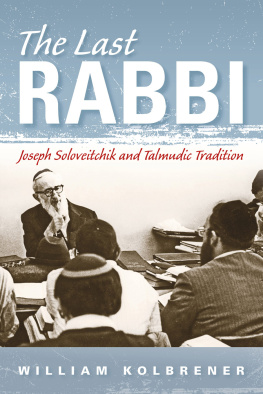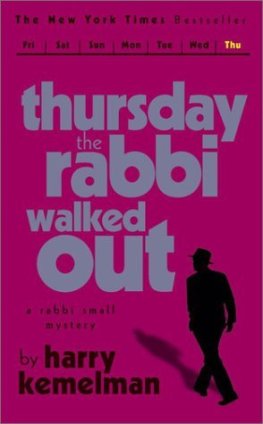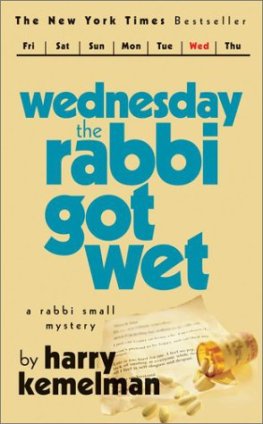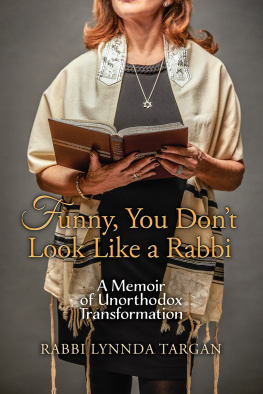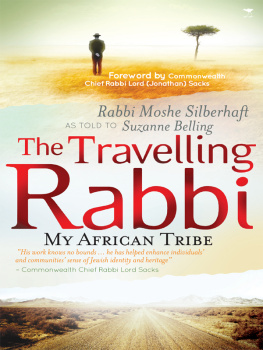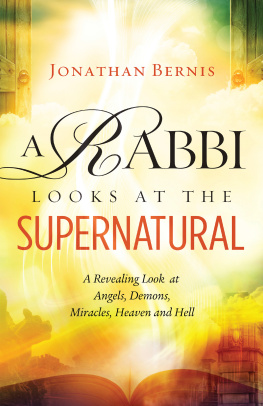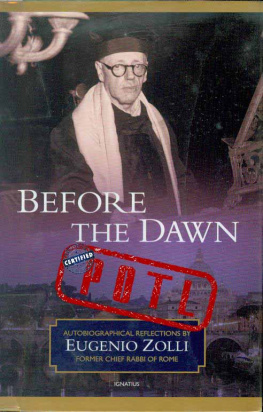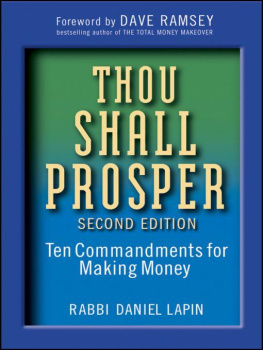
The Last
RABBI
NEW JEWISH PHILOSOPHY AND THOUGHT
Zachary J. Braiterman
The Last
RABBI
Joseph Soloveitchik and Talmudic Tradition
WILLIAM KOLBRENER
INDIANA UNIVERSITY PRESS
Bloomington and Indianapolis
This book is a publication of
Indiana University Press
Office of Scholarly Publishing
Herman B Wells Library 350
1320 East 10th Street
Bloomington, Indiana 47405 USA
iupress.indiana.edu
2016 by William Kolbrener
All rights reserved
No part of this book may be reproduced or utilized in any form or by any means, electronic or mechanical, including photocopying and recording, or by any information storage and retrieval system, without permission in writing from the publisher. The Association of American University Presses Resolution on Permissions constitutes the only exception to this prohibition.
The paper used in this publication meets the minimum requirements of the American National Standard for Information SciencesPermanence of Paper for Printed Library Materials, ANSI Z39.48-1992.
Manufactured in the United States of America
Library of Congress Cataloging-in-Publication Data
Names: Kolbrener, William, author.
Title: The last Rabbi : Joseph Soloveitchik and Talmudic tradition / William Kolbrener.
Description: Bloomington and Indianapolis : Indiana University Press, [2016] | Series: New Jewish philosophy and thought | Includes bibliographical references and index.
Identifiers: LCCN 2016017125 | ISBN 9780253022240 (cloth : alk. paper) | ISBN 9780253022325 (ebook)
Subjects: LCSH: Soloveitchik, Joseph Dov. | RabbisUnited StatesBiography. | Jewish scholarsUnited StatesBiography.
Classification: LCC BM755.S6144 K66 2016 | DDC 296.8/32092aBdc23
LC record available at https://lccn.loc.gov/2016017125
1 2 3 4 5 21 20 19 18 17 16
For my children
The main thing is to learn Torah with joy and excitement.
Joseph Soloveitchik, And from There Shall You Seek
Contents
Abbreviations
Abbreviations of Works by Joseph B. Soloveitchik
Brisker | Jeffrey Saks, Rabbi Joseph B. Soloveitchik on the Brisker Method, Tradition 33, no. 2 (1999): 5060. |
Catharsis | Catharsis, Tradition 17, no. 2 (1978): 3854. |
Confrontation | Confrontation, Tradition 6, no. 2 (1964): 529. |
Family | Family Redeemed, ed. David Shatz and Joel B. Wolowelsky (Hoboken, NJ: Ktav 2000). |
LMF | The Lonely Man of Faith (Northvale, NY: Jason Aronson, 1997). |
Majesty | Majesty and Humility, Tradition 17, no. 2 (1978): 2537. |
Man | Halakhic Man, trans. Lawrence Kaplan (Philadelphia: Jewish Publication Society, 1983). |
Mind | The Halakhic Mind (New York: Free Press, 1986). |
Repentance | On Repentance: The Thought and Oral Discourses of Rabbi Joseph Dov Soloveitchik, ed. Pinchas Peli (Jerusalem: Oroth, 1980). |
Sacred | Sacred and Profane, Jewish Thought 3, no. 1 (1993): 5582. |
Seek | And from There Shall You Seek, ed. David Shatz and Reuven Ziegler (Hoboken, NJ: Ktav, 2008). |
Shiurim | Shiurim Le-Zecher Avi Mori (Jerusalem: Mossad Ha-Rav Kook, 2002), 2 vols. |
Talne | A Tribute to the Rebbetzin of Talne, Tradition 17, no. 2 (1978): 7383. |
Vision | Vision and Leadership, ed. David Shatz, Joel B. Wolowelsky, and Reuven Ziegler (Hoboken, NJ: Ktav, 2012). |
Voice | Kol Dodi Dofek: It Is the Voice of My Beloved That Knocketh, in Theological and Halakhic Reflections on the Holocaust, ed. Bernhard H. Rosenberg (Hoboken, NJ: Ktav, 1992), 51117. |
Whirl | Out of the Whirlwind: Essays on Mourning, Suffering and the Human Condition, ed. David Shatz, Joel B. Wolowelsky, and Reuven Ziegler (Hoboken, NJ: Ktav, 2003). |
Abbreviations of Other Works
Action | Jonathan Lear, Therapeutic Action (New Haven, CT: Yale University Press, 2003). |
Desire | Jonathan Lear, Aristotle: The Desire to Understand (Cambridge: Cambridge University Press, 1988). |
Loewald | Hans Loewald, The Essential Loewald, ed. Norman Quist (Hagerstown, MD: University Publishing Group, 2000). |
Love | Jonathan Lear, Love and Its Place in Nature (New Haven, CT: Yale University Press, 1990). |
Midrash | David Stern, Midrash and Theory (Evanston, IL: Northwestern University Press, 1996). |
Religion | Dov Schwartz, Religion or Halakha: The Philosophy of Rabbi Joseph B. Soloveitchik (Leiden: Brill, 2007), vol. 1. |
SE | Works by Sigmund Freud cited from The Standard Edition of the Complete Psychological Works of Sigmund Freud, trans. James Strachey and Anna Freud (London, 19671974), 24 vols. |
Sun | Julia Kristeva, Black Sun (New York: Columbia University Press, 1992). |
Preface
That is what the highest criticism really is, the record of ones own soul. It is the only civilized form of autobiography as it deals not with the events but with the thoughts of ones life the spiritual moods and imaginative passions of the mind.
Oscar Wilde, The Critic as Artist
T HIS BOOK BEGAN in disillusionment.
That all scholarship is personalthat academic inquiry is never strictly objectiveinforms the argument of this book on Joseph Soloveitchik, namely that what philosophers and historians of science call the constraints of subjectivity and objectivity are always mutually defining, and the insistence on objectivity a fussy remnant of an older scholarship. Not only is the scholarly born out of the personal, indeed, as Wilde writes, even the highest criticism is born out of the passions of the mind. The current work, which evolved from an earlier, in retrospect idealized, perspective on Soloveitchik, aspires to meet Wildes criteria of high criticism while remaining a deeply personal work.
My first book, written nearly twenty years ago on the historiography of the English poet John Miltons critical reception, was informed by the disciplinary languages of early modern literary studies. But Milton, as I have told skeptical Israeli undergraduates in pedagogical efforts to license a critical encounter with the author of Paradise Lost, has never been a normative figure of authority for me; he is not, as I tell them, a Rebbe. By contrast, the subject of this book, Joseph Soloveitchik, the scion of the Brisk dynasty of Talmudists, did occupy a version of that role for me, as he was for many others, though unlike them, I met him only through his writings. Prefacing the current work with an acknowledgment of a personal engagement with Soloveitchik serves neither as disclaimer nor confession but a disclosure of the personal investments that brought me to writing The Last Rabbi
Next page
